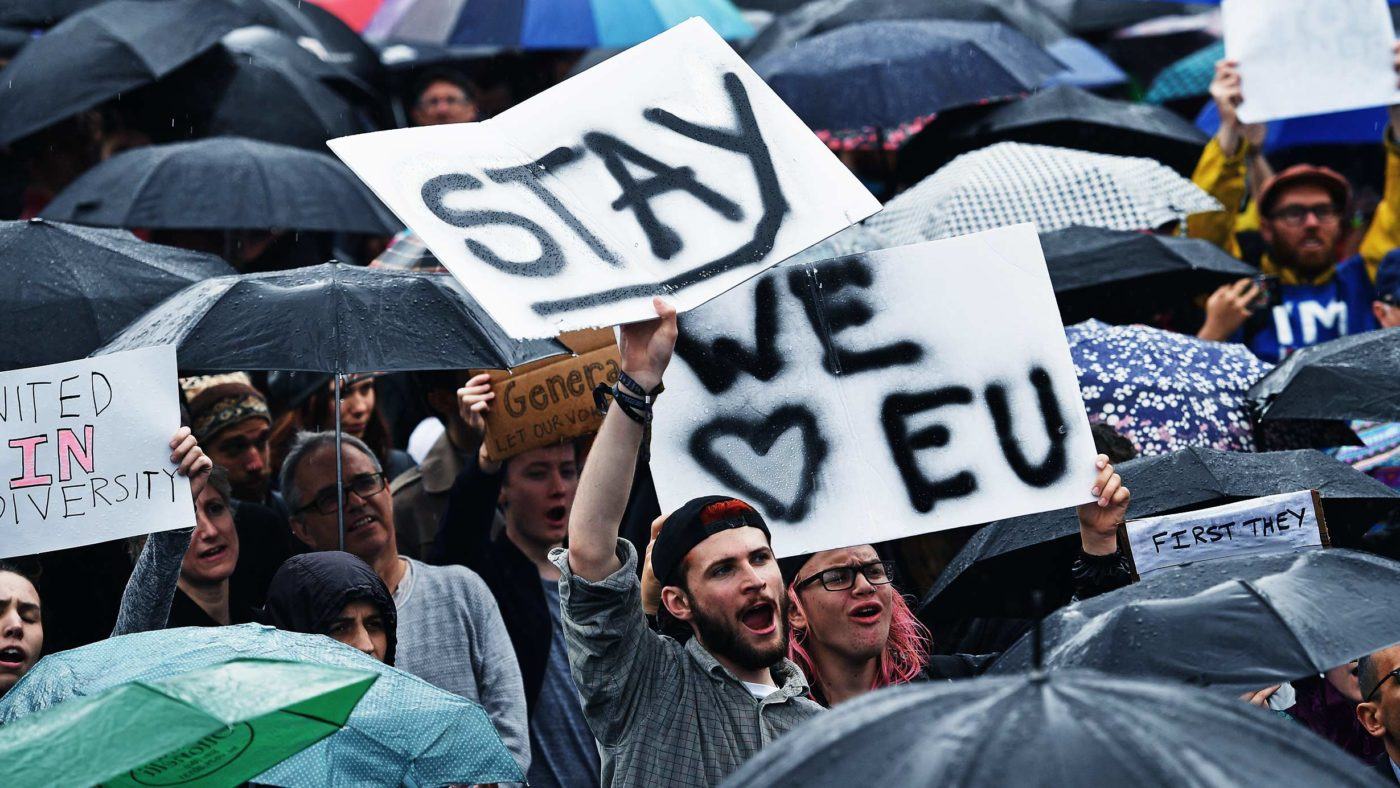It took British youth just hours to go to the barricades once it became clear that the decisive votes for Brexit stemmed from the country’s elderly. How could those who might not live to experience the full consequences of a Brexit be allowed to decide on it? As much as I sympathize with this sentiment of betrayal and loss, I cannot help seeing the irony in their behaviour: a generation that sees the state as the solution for nearly everything is shocked by how democracy can work against certain groups.
Democracy has brought great benefits to our societies. At the same time, democratic decision-making, whether through parliament or direct referenda, has always been about favouring a majority opinion over a minority. Taking away the rights of one group on behalf of another is not the antidote of democracy; it is endogenous. Contrary to popular narrative, democracy never meant freedom from being ruled; it just changed the rules of who is allowed to infringe and curtail on your freedoms. By handing these powers to a government that people could to a certain extent codecide on, it further legitimized this behaviour, styling it as self-rule, and thus as just.
It amazes me that people are now demanding an end to public referenda after their loss, or advocate the withdrawal of voting rights for the elderly. It makes me wonder where their sense of entitlement comes from. Maybe they would do good to reflect on the virtues and vices of democracy as a whole. A reflection might help them understand that the vices are not old people, but rather the general mindset that (electoral) majorities can dictate how others live their lives and infringe on their rights.
It has become normal in our modern democracies to see the rights of certain groups being taken from them, mostly under the cloak of the public good. We spent years denying same-sex couples the right to marry. We forbid drug users the purchase and possession of their favourite goods because it is allegedly harmful to society and children. We take away the rights of workers to their full income, because we decide that others need the money more urgently. But do people ever question the supremacy of democracy over it, or advocate taking away the voting rights of religious fundamentalists? The simple answer is no. Until now, when some decided that the UK should withdraw from the EU, because this was best for British sovereignty and economy.
The UK leaving the EU is a major decision, and might mean major changes particularly for Britain’s youth. But while many are rightfully concerned, others do not seem to give a damn. Just as with all other decisions, what means the world for one person has no importance for another or offends the third. If you are a young student who wants to travel and work in Europe, Brexit might destroy your dreams. If you are a young steelworker in Scunthorpe, favouring national protectionism of your industry, you probably welcome it. Even historic decisions such as Brexit are no different from small democratic decisions in this regard.
Some might bring up that the decision on EU membership was taken by public referendum, the most direct and extreme form of democracy, enabling uneducated masses to cast a vote on something they did not understand. I am sorry to break this to you, but this is a feature of normal democracy. The average voter probably understands as much about Brexit’s economic, legal and political implications as he understands about the real consequences of the proposals delivered by Labour or the Tories. Research has repeatedly proven how voters are prone to be wilfully ignorant about politics, and base their decisions on affiliation rather than facts.
Probably the British decided poorly when they voted to leave the EU, although we will only see the real results in the long-term, after the Brexit negotiations are finished. But instead of feeling sorry for themselves about how they got robbed of their future, Britain’s youth should reflect on the system that made this possible and which it holds to such high esteem. In the same way that others took their freedom to live and work freely across Europe because they deemed it the right thing to do, they themselves regularly take away the rights of others based on the same mindset. One thing we can definitely take from this referendum, is realisation that democracy cannot solve everything for everyone.


